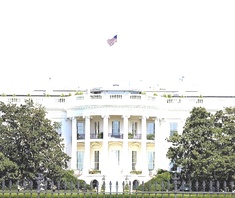
Free Association Explained
Last updated: Wednesday May 12th, 2021
Report this blog
Current Freely Associated States
Free association is when a country runs some of its own affairs but defense is conducted by an external country. In Oceania, the countries of the F. S. Micronesia, Palau, and the Marshall Islands are currently freely associated with the United States. They were former US territories, together with the Northern Mariana Islands, were in the Trust Territory of the Pacific Islands, which was administered by the US Navy and the United States Department of the Interior. The countries declared and gained independence in 1979, 1981, and 1979 respectively. The thing is, though, that even though the US covers their defense, they still run their affairs. On top of that, citizens of these countries can serve in the US military. In return for the protection, these nations give the US access to military testing. There are two other countries in Oceania that are freely associated but aren't UN-recognized: Niue and the Cook Islands. These are both associated with New Zealand.
Historical Freely Associated States
From 1967 onwards, the UK protected six Caribbean States: Antigua (until 1981), Dominica (until 1978), Grenada (until 1974), Saint Christopher-Nevis-Anguilla (until 1983), Saint Lucia (until 1979), and Saint Vincent (until 1979). They enjoyed many of the freedoms that the current freely associated countries. Eventually, they all requested and were granted full independence, except for Anguilla from the St Kitts-Nevis-Anguilla union, which decided to stay a United Kingdom-dependent territory.
Shortly before the USSR broke up, the autonomous Soviet republic of Tatarstan declared itself a country that was protected by international law. Tatarstan and Russia entered into a treaty that said that Tatarstan was "associated" with Russia, but not part of it. Tatarstan gave some of its powers to Russia, including defense and foreign affairs. Tatarstan's current constitution makes Tatarstan technically a part of Russia.
Potential Freely Associated States
Not only were there freely associated countries in the past, but some countries might become freely associated in the future.
Tokelau is a dependent territory of New Zealand. It had a referendum in February 2006 to see if it wanted to stay as a dependent territory or a freely associated state with New Zealand. While most voters wanted free association, not enough people voted in favor. Another referendum was held in October 2007 but failed by 16 votes short of approval.
Abkhazia is a self-declared country in Georgia (the country) with little international recognition. In Moldova, Transnistria has a similar story. Both of these states want to become associated states with Russian Federation. In 2006, Transnistria had a referendum, in which most people wanted independence and free association, but the international community doesn’t recognize the referendum.
Guam is an unincorporated territory of the US, led by its governor, Eddie Calvo. He is currently campaigning for the option of free association, like the Marshall Islands, Micronesia, and Palau as one of Guam’s possible options.
Those comparable to Free Association
So now, we know the five associated states, historically associated states, and some that want to be freely associated. Now, let’s look at some other states that can compare to these freely associated countries.
Andorra is a small country in the Pyrenees Mountains, bordering France and Spain. It does not have armed forces, but it does have a small ceremonial army. Spain and France provide military assistance in case of an emergency. Andorra is a full member of the UN and is a special member of the EU. Andorra has a small army, which has historically been raised or reconstituted at various dates, but has never in modern times amounted to a standing army. Being a landlocked country, Andorra has no navy. Before World War I, Andorra had a military of about 600 part-time militiamen. It didn’t involve itself in WWI but did declare war on Germany. It was still at war until 1958 when an official peace treaty was signed.
